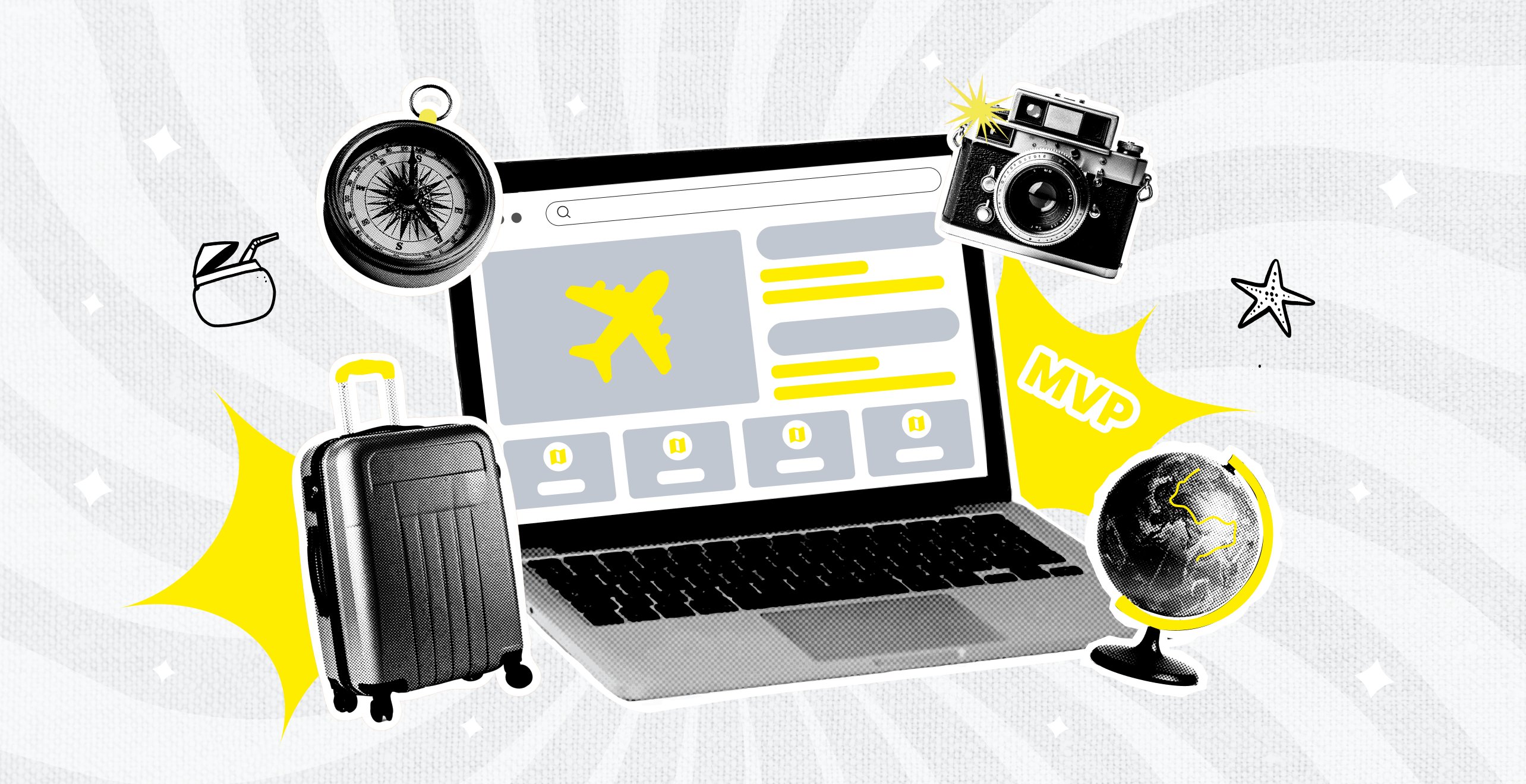How a Zero-Deposit Renting Will Revolutionize the Rental Industry - Startup Stories with Tony Popov

Anton Oparienko (COO, Upsilon): Today I'm speaking to Tony Popov, who is CEO and co-founder at Kiko. So Tony, tell me about the product, what are you doing? What problem are you solving?
Tony Popov (founder and CTO of Kiko): We're doing property rentals. Basically, the problem is that the rentals market right now is not the greatest place for both sides: landlords and tenants. Landlords face the issue of extremely high fees. On average, they range from 12 to 20% on the UK market. On the tenant side, we see that agencies don't really care about tenant problems or they don't resolve them fast enough. Generally, the communication is quite broken. So, we offer a full marketplace and plan which would cost less for landlords. It only costs 6%. Our advantage is that we own the process center. We have an app where landlords can add their properties and advertise them further. We auto-publish them to search engines like Zoopla. After that, tenants can find landlords easily. Also there is a tenant top on the other side, so both sides can communicate in a transparent way.
We conduct reference checks, which are automated for the partners. The process is faster than a traditional one which could previously take around a week. After that the landlord can review the offers, review the risks on the tenant side, see if they pose any risk of not paying the salary or previous historical evictions. After the acceptance, we manage any rental processes that are required. For example, we have a chat section where the tenant and landlord can communicate. Moreover, our support team can also join in to help with the issues. Also, we overview the payments for the rent. That is an interesting part because we guarantee on-time delivery for the landlord and tenant so that the latter can pay on whichever day they like. Say, if the landlord wants to receive payment on 17th each month, and the tenant has their salary around 31st, they can pay on the first day of the consecutive month. We just cover this difference by recalculating the first month payments and then automating the process.

So, there's generally, sort of a lag between the payments. But we are working with open banking to allow the payments to arrive really quickly. Compared to a traditional card requiring, it will make us wait at least three or four days. As for open banking gets, we are really close to instant ones. So, we have an interesting back-up in this respect.
Anton: You mentioned that on average, landlords have to face higher fees. Who are your main competitors on the market?
Tony: For example, Residently in the UK and home.ht in Germany are the closest competitors right now. So, they're offering quite a similar service for a bit higher percentage fee, although the markets are different. And their approach is a bit different because Residently fully covers the needs of the landlord. In this way, the tenant only communicates with Residently representatives. And home.ht actually, rents the properties from the landlords and sublets them.
Anton: So, speaking about the COVID situation, how does it affect your company now?
Tony: For the initial launch, we're selecting the audience where we do not have to conduct physical viewings. Before COVID, we considered that as a sort of business optimization - to run the process within that target group and reduce operation costs quite a bit.
And currently, that even became a feature because we offer 3Ds as a centralized medium for flat viewings. Our operations people measure quite a ton of stuff when reviewing a flat. We do that to make sure the flat is in great condition for the tenant. Also, we are planning to offer a sort of insurance if that flat doesn't meet expectations. For example, we pay the hotel and accommodation costs until the tenant finds their next flat and they're happy.
Anton: So you're both kind of landlord- and tenant-friendly at the same time. And speaking about the 3D view, I think this is an amazing feature. With Airbnb rentals, for example, the flat can be completely different when you arrive there.
Tony: Exactly. That's quite a high risk. We're interested for both parties to be happy. If the landlord is renting the flat that's part of T's and C's, they have to be transparent about any issues in it.
Anton: And what is the process of creating a 3D model of the flat? Can I do it by myself using the application? How is it done from the technical side?
Tony: We are partnering with Matterport for the technical part. They are the world's biggest supplier of software for rentals. We're currently filming the flat with a professional Matterport app. But recently, they've released an iPhone app and Android app Beta. They closed Beta for now. But on the iPhone, you can try it out. The quality is rather good. You can just download the Matterport app for one flat. It's free, I think. You can just go around the flat, basically filming it, and then you'll get the 3D model based on Machine Learning.
Anton: Sounds cool. What do you think about other emerging technologies? Can VR or AI affect what you're doing, your product and the business in general?
Tony: The closest thing we might use is Apple's LIDAR sensor on their iPad Pro. It makes 3D scanning more accurate. LIDAR basically measures the distance that the light travels. You can see the circle of a heat map of how far the objects are. As well, Apple has delivered an SDK, which distinguishes tables from computers and all sorts of stuff. So, I assume this technology which motherboards provide nowadays might become way better and open-source as well. We assume that landlords will be able to make all the scans for free in the near future. That's what we're looking forward to in two years or so. Generally, with other tech, there are a lot of things we can add to our system.
For example, if we control smart locks, all the deliveries could be performed when you're not in the flat. This is possible through the use of IoT. Another thing is the drones and the COVID situation. I think drones are becoming way more interesting because of the demand for air deliveries. It is a cost-effective and safe way to deliver things.
Anton: Can we talk maybe a bit more about the background of your business? What was the motivation?
Tony: So basically, me and my co-founder Val met last summer. He had an idea to start a company where we would rent the flat sides with focus on quality service. We also wanted to calculate the costs and offer our service at a much lower price than on the market. We thought the market was ineffective.
First of all, the margins in this market are lowering year to year. In previous years, margins in rental agencies were around 25%. Now they're closer towards 15%. Our model goes with lower costs. When automated, it offers much higher margins, about 50% or so. We saw that as an opportunity. Another thing is that the market is quite fragmented. There are multiple agencies with no big monopoly over the long-term rentals. So eventually, we aim to become one on the market.
Anton: Yeah. Did you have an entrepreneurial background before that? How did you find that motivation and courage to start a company from scratch?
Tony: It takes some courage, for sure. I had started a few companies before. We tried to start them when I had full-time employment. Here's what I've learned from that. If you're trying to start a company in your spare time, most probably you won't succeed. We tried to start an e-scooter sharing service with my other friend. We got some offers from people in Portugal willing to open the rentals. But our full-time jobs took too much time, and this idea eventually died off.
I understood that I needed to actually start on something full-time. And then Val came up with this idea. He achieved much making their daily signups grow from 1.5k a day to 35k a day over two years. And he's generally a very smart person. So, I saw this as a very strong foundation and the problem seemed quite realistic.
So, we talked to some VCs and our friends who are CEOs and all of them said that this problem exists. And it would be a great thing to make a disruption in this market in a sort of a similar way to what Revolut is doing right now in the UK-based bank.
Anton: So right now, you're focused on the UK market. Do you have plans on expanding your product to other regions?
Tony: Yeah, sure. So, with our current proposition to manage the properties and have a full control of operations, we're looking at bigger cities around the globe. Basically, in the UK, it's just London I think. In Europe, take Berlin or Vienna, the product won't work because they have a super high average tenancy there. It is around 40 years or so. People there pass over their rental contracts to their children. But if you're talking about Barcelona, Madrid or Milan or Paris, all of these cities are quite vibrant and people never leave in a flat for one or two years. New York, San Francisco, Boston, Chicago, - they're great places for disruption.
Although, to open in each city, we might have an interesting strategy. We can offer all the operational controls from our agents, the landlords and subsequently lower current fees. Our current plan is a 6% fee per month. And we're thinking about lowering it to frequent half percent.We focus on making the rentals process smooth, still leaving guaranteed payments and some dispute resolutions. All these things can be done remotely. And not only in the big cities, we can grow in the smaller cities as well.
One group of landlords are the people who want to manage everything by themselves, Another one is about the people who want everything managed for them. There is an opposite opinion of different people.
Anton: You are the CEO and have a great software background. So, what were the greatest challenges? What did you learn from that? And how did you overcome them?
Tony: From the technical side, I'd say the most interesting and biggest challenges were sort of product-related ones. Our product involves a lot of processes. In my opinion, our product is a bit simpler than financial products because you don't have a lot of real-time interaction. But still you have a very big business logic complexity with a ton of edge cases. We also have to model all the processes very diligently. So, then we see that all the edge cases are covered without consequences. All these things have to be modeled quite carefully. So generally, it's solved by initially designing all the software and documenting everything before we implement things.
Anton: And from the beginning, did you hire external technical teams?
Tony: So, for the first few months, it was just me. I was setting up all the infrastructure and building the base applications. After that, we hire front- and back-end engineers to work on the product array.
Anton: So, you prepared all the ground for them to start on. Do you work with your engineers in London or remotely?
Tony: Currently, we're working remotely. But generally, I'm working from London with the rest of the product team and engineers that are currently based in Moscow. We also employ remote specialists.
Anton: What is the main reason for choosing Moscow as the location?
Tony: First of all, Moscow has great quality engineers at a low price. They are native Russian speakers, which is a very good thing because it eases communication.
Anton: For you personally?
Tony: Yeah, for myself. I'm Russian. I think that I know a lot of processes of how you hire people in Moscow and essentially, how you work as a contractor in Moscow. There are a lot of other great markets like India, Pakistan or even Iran. But not knowing their native language and not knowing their processes is a big blocker from going towards that market. And I think it is essential for a startup it's easier to focus on, like one software market and not distribute the team too much before you have stable management processes that you can rely upon.
Anton: What would be your advice to somebody who wants to start a new company or jump into making a startup and earn money? So, from your experience, what would be the best advice?
Tony: It is important to be committed, genuinely interested in what you are doing. You should be manacled about making that come to life. I mean, if you don't have this internal drive, it's probably not going to happen. If you have the feeling that that is the only thing I want to do right now. Like you're driven to work all the time, it makes a great start.
It is very important to be lean and to not give away a lot of startup equity in the beginning. Because from a technical point of view, every service out there tries to charge you like 10 to 100 pounds or dollars per month, for whatever reason. But if you can save this money, you can actually lower your burn rate quite a bit. So, like in our company, and in most of them, I guess, one of the main focuses of a CEO is not to let the company run out of money. And in technical space, I think there is a lot of room for movement and there are a lot of free or cheaper services. For example, when you're starting and you have a big engineering team, imagine you want to start in the clouds, like GCP or AWS These services are tremendously expensive for big teams. There are cheaper alternatives like Digital Ocean, which would be not so nice.
But generally, you can save thousands of dollars or like tens or hundreds of thousands each month if you optimize your processes towards having a cheaper runway. And the other thing I can think about is just being friendly and hiring committed people. I mean, a lot of people will try to make you believe that they are super interested in your project. But then they don't work a lot and they're not super involved in product development, they just code or they just do their operational stuff. I think it is essential to have low to no management team initially, so you don't spend anything on that. And maybe going as harsh as firing early if you see that people are not committed.
Anton: Thank you, Tony, for giving such great advice. And thank you for an exciting conversation.
Is your startup in search of a tech partner?
Upsilon's team has talented experts who can help you develop your product.

to top














